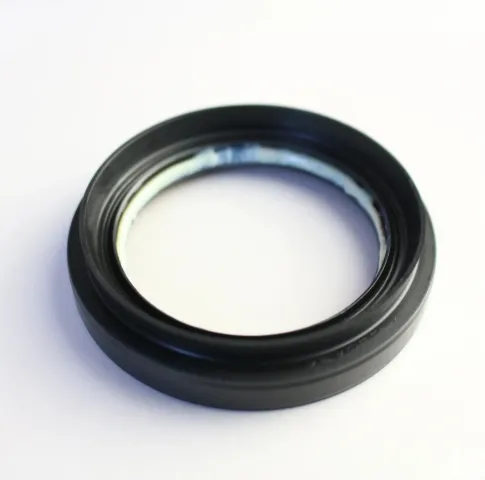A Comprehensive Guide to Shaft Oil Seals in Marine and Industrial Applications
When it comes to sealing rotating equipment, the importance of choosing the right shaft oil seal cannot be overstated. Whether you're dealing with industrial pumps or ocean-going vessels, a high-performance seal is essential for preventing fluid leakage, protecting machinery, and extending equipment life. This article explores the function and importance of mechanical shaft seals, marine shaft seals, and innovations like the Tides Marine shaft seal—with a special focus on rotary shaft oil seals.

The Purpose and Performance of a Shaft Oil Seal
A shaft oil seal also known as a lip seal or rotary seal, is designed to prevent oil, grease, or other fluids from leaking along a rotating shaft. It also blocks contaminants such as water, dirt, or dust from entering sensitive mechanical systems.
These seals are typically found in:
Engines
Gearboxes
Pumps
Industrial motors
The structure of a shaft oil seal generally includes:
A flexible elastomer lip that maintains contact with the shaft
A metal or rubber outer casing that fits snugly in the housing
A garter spring that ensures constant radial pressure
Proper material selection is crucial. For example, nitrile rubber (NBR) is widely used for general-purpose applications, while fluoroelastomer (FKM) is preferred for high-temperature or chemically aggressive environments.
One specialized type is the rotary shaft oil seal, which is specifically designed for high-speed rotating equipment. These seals reduce friction and wear, ensuring optimal performance and reliability.
Innovations in Marine Technology: The Tides Marine Shaft Seal
For marine propulsion systems, keeping water out and lubricant in is vital. Traditional packing glands are prone to leakage and frequent maintenance. That’s where the Tides Marine shaft seal stands out as a modern, dripless sealing solution.
The Tides Marine shaft seal system uses a face-sealing design that pairs a stationary carbon flange with a rotating stainless-steel rotor mounted directly on the shaft. This ensures a tight, reliable seal even under harsh ocean conditions.
Key features of the Tides Marine shaft seal:
Dripless performance, reducing bilge water and corrosion
Self-aligning design, adapting to shaft movement and misalignment
No need for constant adjustments, unlike traditional packing boxes
Built-in water injection ports, which keep the seal cool and lubricated at higher RPMs
These seals are popular in both recreational boats and commercial vessels for their long-term reliability, low maintenance, and cleanliness. They’re a significant advancement in the world of marine shaft seals.
Choosing the Right Mechanical Shaft Seal for Your System
A mechanical shaft seal differs from a standard lip seal by using two polished sealing faces—usually one stationary and one rotating—that create a highly effective fluid barrier. These are often used in pumps, compressors, and other applications where pressure, temperature, or chemical compatibility exceeds the capabilities of a basic oil seal.
Why choose a mechanical shaft seal:
Ideal for high-pressure or high-temperature environments
Resistant to aggressive chemicals and slurries
Available in single or double seal configurations for added protection
Suited for continuous-duty operations
When it comes to marine environments, marine shaft seals often incorporate mechanical sealing elements to withstand water pressure and shaft movement caused by tides or vessel speed. These seals are engineered to work in a dynamic, constantly shifting environment where standard seals would quickly fail.
In choosing a mechanical shaft seal, consider:
Shaft speed and diameter
Fluid type (oil, water, chemicals)
System pressure and temperature
Mounting space and accessibility
A properly selected mechanical shaft seal can dramatically improve equipment uptime and reduce maintenance costs.
From industrial systems to marine propulsion, shaft oil seals play a crucial role in system integrity and performance. Whether you need durable rotary shaft oil seals for high-speed machinery, innovative solutions like the Tides Marine shaft seal, or rugged mechanical shaft seals for challenging conditions, understanding their applications is essential.
In marine applications, specifically, choosing the right marine shaft seal can mean the difference between smooth sailing and frequent, costly repairs. With advancements in sealing technology, today’s seals offer better performance, longer life, and lower maintenance than ever before.
-
Understanding Oil Drain Plugs: Quick, Universal, and Self-Tapping Options for Every Engine
Nuacht Jul.24,2025
-
Mastering Automotive Oil Drain Plugs: Types, Troubles, and Smart Solutions
Nuacht Jul.24,2025
-
How to Fix and Prevent Drain Plug Leaks: Essential Tips for a Smooth Oil Change
Nuacht Jul.24,2025
-
Exploring Flat Gaskets: Materials, Applications, and Industrial Uses
Nuacht Jul.24,2025
-
Choosing the Right Oil Drain Plug: From Universal Fit to Magnetic Protection
Nuacht Jul.24,2025
-
A Comprehensive Guide to Flat Gaskets: Types, Materials, and Applications
Nuacht Jul.24,2025
-
The Ultimate Guide to Choosing the Right Car Repair Kit for Every Situation
Nuacht Jul.18,2025
Catagóirí táirgí















